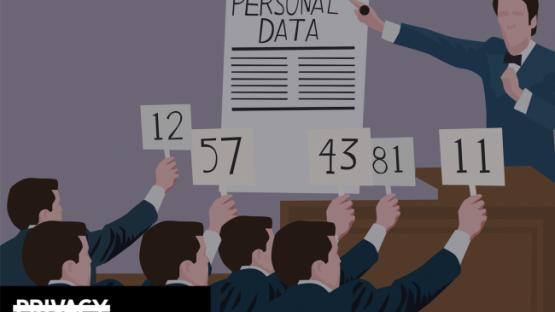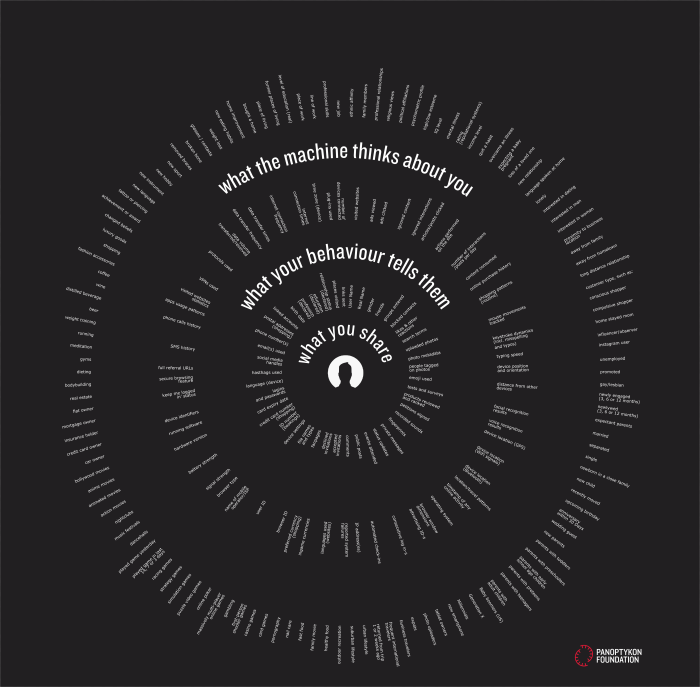
Why am I really seeing that ad? The answer might be Real Time Bidding (RTB)

Targeted online ads can be confusing. Sometimes, it seems as if advertisers know us better than we know ourselves and sometimes the opposite. Then again, an ad is chasing us around the internet, it can get very annoying and even distressing. What all targeted ads have in common is that it’s often impossible to understand why we are being targeted – and how much of our data is being collected and shared along the way. So, why are you really seeing this ad?
One answer is Real Time Bidding (RTB) – an automated process that enables advertisers to target very specific groups of people on different websites, videos, apps without having to negotiate prices directly.
How does it work?
RTB is an automated process that takes place (when implemented) every time a page with available advertising space is loaded. During this process a wide range of data is broadcasted to multiple advertisers and put to auction. This will include information about the advertising space, the page you're visiting (URL, topic, category etc.), and you and your browser (your IP address, approximate location, device information etc.).
Once this information is shared, different AdTech companies link this information to other things they know about you or your browser: your browsing history, predictions of your interest, age, gender, income and more. They often work with data brokers and other suppliers of data to create even more granular profiles of people.
As a result, advertisers can bid on very specific audiences – for example, low-income women who have visited a brand’s website and are now in the proximity of the brand’s offline store. The highest bidder wins the auction and displays their ad. And yes, all of this happens each time you visit a webpage. In the fraction of a second.
3 Levels by Panoptykon - Licence: CC BY-SA 4.0 - Click to see full image
What’s the problem?
RTB is an opaque system that allows companies, advertisers and political campaigns to buy access to you and your attention. It allows companies to target people based on their perceived spending power, or to reach out to vulnerable consumers in ways that are incredibly difficult to audit.
RTB is also a privacy nightmare. Through RTB, large amounts of personal data exchanges hands between a large number of players a billion times a day. If you’re reading an article about erectile dysfunction, depression or self-harm, chances are high, that this will be broadcast to thousands of companies. If you’re booking a table, purchased an item at an online retailer, searched for a flight, or read the news, this will also likely be shared with ad exchanges, Supply Side Platforms (SSPs), Demand Side Platforms (DSPs) and countless of other recipients in the ad auction system. We don’t know where our data ends up, we don’t know who it is being shared with, and whether it’s being used against us in contexts that have nothing to do with advertising.
What is PI doing about it?
You might be wondering how all of this tracking and data sharing is even legal, especially under the General Data Protection Regulation (GDPR). We do too! Privacy International has spent the last years looking at how our data is exploited, this includes investigating and challenging the hidden online data ecosystem built on tracking, profiling and targeting us. Using the new standards set by GDPR, Privacy International is seeking to promote regulatory scrutiny of the industry and hold specific actors to account. In November 2018, we complained about seven companies in the hidden data ecosystem to Data Protection Authorities in Ireland, the UK, and France. As a result of our submission, the Irish Data Protection Commission (DPC) has now opened a formal probe into Quantcast’s data practices. We believe AdTech companies' practices are in breach of GDPR and want to continue to hold these companies to account.
But this alone is not enough. We believe that people should be able to understand what's at stake. To contribute to this, we have written more explainers to simplify concepts and topics related to online advertisement:
- Tracking: the reality and mechanism behind AdTech tracking how it turned the internet into a surveillance machine
- Cookie banners and consent boxes: why they are so annoying and deceptive
In addition to this, and because we are not the only ones concerned and working on these issues, we have created a resource page presenting initiatives led by other organisations and individuals tackling AdTech as well as a timeline of complaints against AdTech. This includes examples of harms, legal actions, research and explainers, illustrating the scale of the problem and the different action taken.




